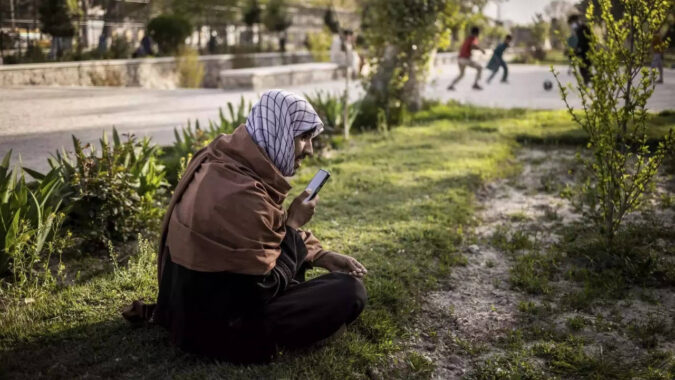KABUL: The team of Taliban security officers assembled on the outskirts of Afghanistan’s capital to prepare for a raid on an Islamic State hideout. The leader, Habib Rahman Inqayad, scrambled to get the exact location of their target. He grabbed his colleagues’ phones and called their superiors, who insisted they had sent him the location pin of the target to his WhatsApp. But WhatsApp had blocked his account to comply with US sanctions. “The only way we communicate is WhatsApp — and I didn’t have access,” said Inqayad, 25, whom NYT has followed since the Taliban seized power in 2021.
In recent months, complaints from Taliban officials, police and soldiers of their WhatsApp accounts being banned or temporarily deactivated have become widespread, disruptions that have illuminated how the messaging platform has become a backbone of the Taliban’s nascent government.
The US has long criminalised any form of support for the Taliban. Consequently, WhatsApp scans group names, descriptions and group profile photos on the messaging app to identify users among the Taliban and block their accounts. The policy has been in place since US sanctions were enacted more than two decades ago.
But over the past two years, the Taliban’s reliance on WhatsApp has become even more far-reaching as smartphone use has proliferated and 4G networks have improved across Afghanistan with the end of the US-led war. As the Taliban have consolidated control, the inner bureaucratic workings have also become more organised — with WhatsApp central to their official communications.
The cat-and-mouse game of shutting down accounts has become a headache for Taliban officials— an almost daily reminder that the government they lead is all but shunned on the world stage. “We have one group of 50 people belonging to the Islamic Emirate, and 40 to 45 numbers in it have been blocked,” said a spokesman for the police in Takhar province. Still, many whose accounts have been shut down have found workarounds, buying new SIM cards. Inqayad recently purchased a new unlimited data plan that costs him 700 afghanis a month — about $8. It is expensive for his budget, he says, but worth it for the app. “My entire life is on my WhatsApp. ”
In recent months, complaints from Taliban officials, police and soldiers of their WhatsApp accounts being banned or temporarily deactivated have become widespread, disruptions that have illuminated how the messaging platform has become a backbone of the Taliban’s nascent government.
The US has long criminalised any form of support for the Taliban. Consequently, WhatsApp scans group names, descriptions and group profile photos on the messaging app to identify users among the Taliban and block their accounts. The policy has been in place since US sanctions were enacted more than two decades ago.
But over the past two years, the Taliban’s reliance on WhatsApp has become even more far-reaching as smartphone use has proliferated and 4G networks have improved across Afghanistan with the end of the US-led war. As the Taliban have consolidated control, the inner bureaucratic workings have also become more organised — with WhatsApp central to their official communications.
The cat-and-mouse game of shutting down accounts has become a headache for Taliban officials— an almost daily reminder that the government they lead is all but shunned on the world stage. “We have one group of 50 people belonging to the Islamic Emirate, and 40 to 45 numbers in it have been blocked,” said a spokesman for the police in Takhar province. Still, many whose accounts have been shut down have found workarounds, buying new SIM cards. Inqayad recently purchased a new unlimited data plan that costs him 700 afghanis a month — about $8. It is expensive for his budget, he says, but worth it for the app. “My entire life is on my WhatsApp. ”
